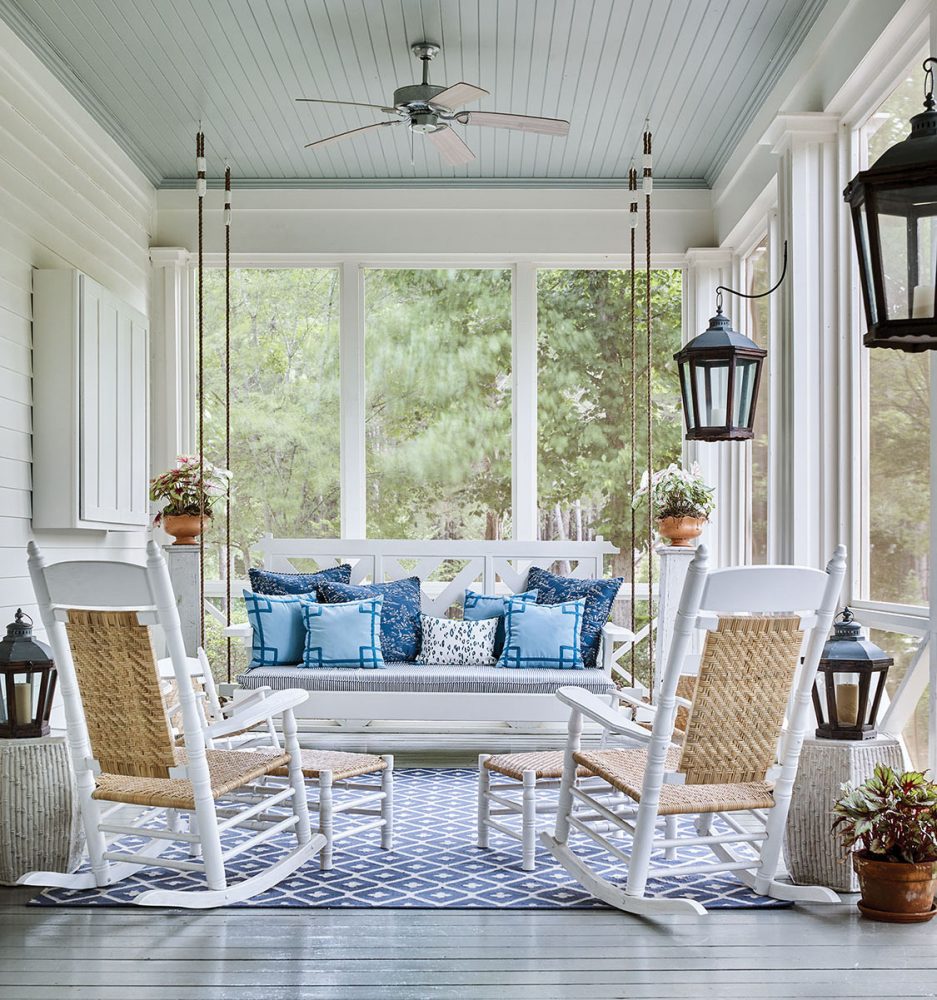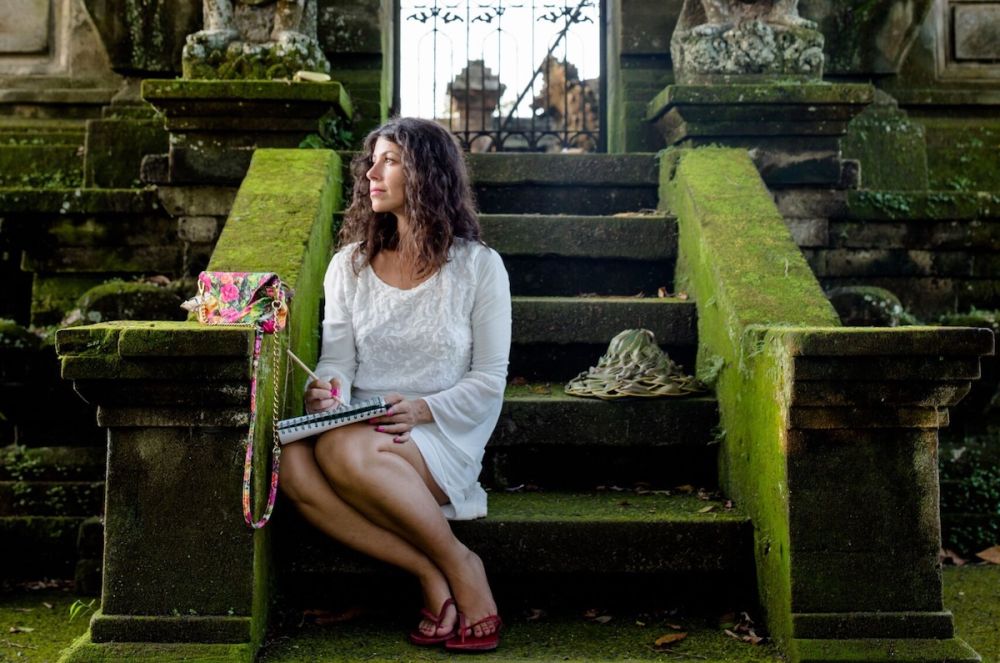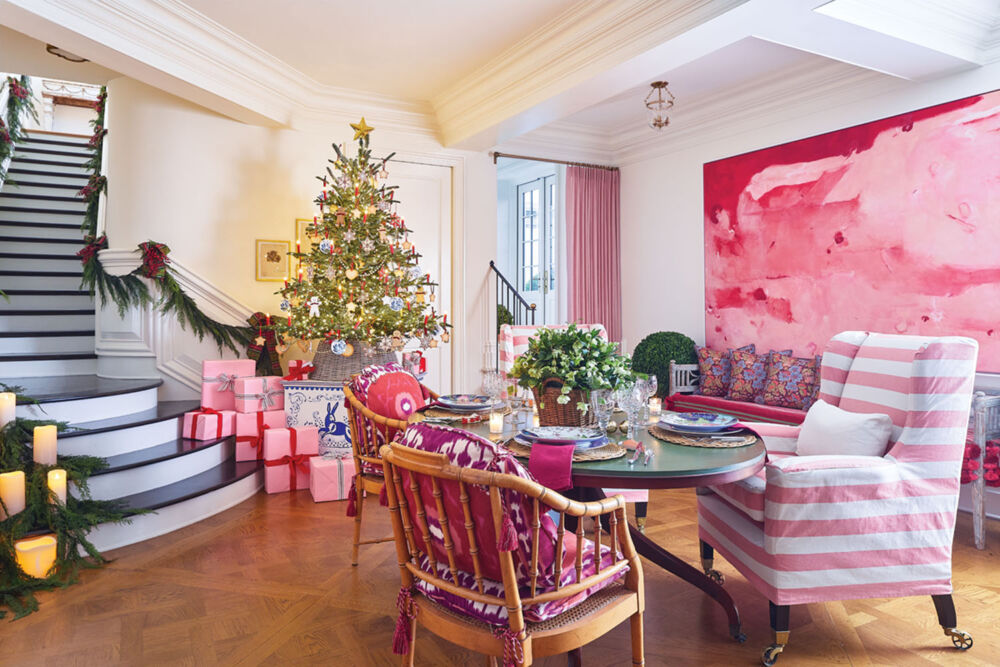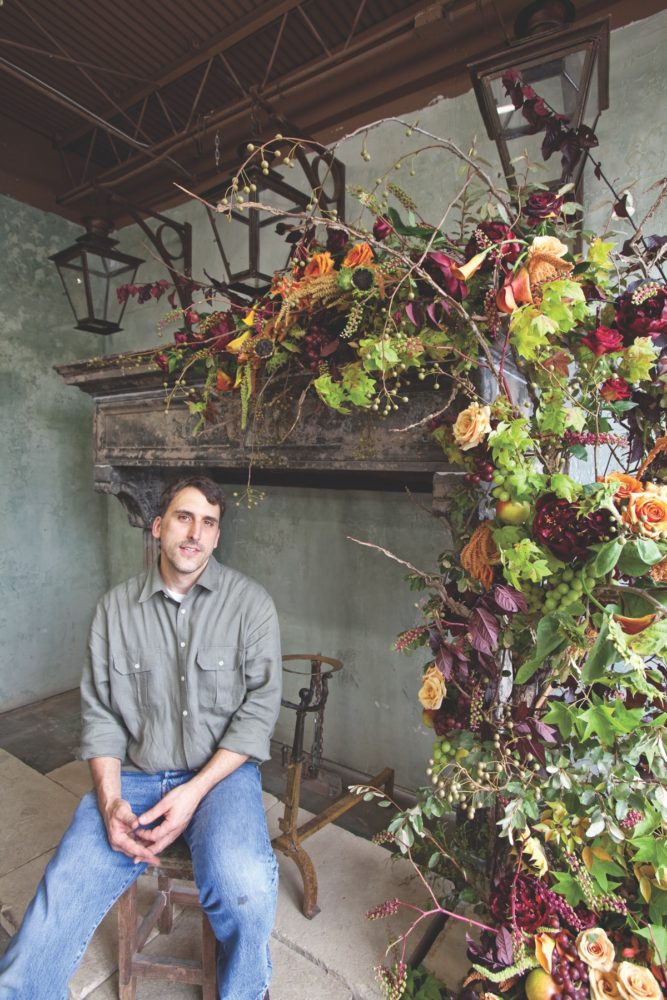
Houston designer Johnathan Andrew Sage shares how he made this extraordinary mantel arrangement, step-by-step.
My inspiration for this arrangement comes from the fall materials I chose to incorporate. I enjoy using natural materials that have a wild or organic look, which give a finished arrangement its own individual character and style. Perfect for celebrating a holiday or special event at home, this mantelpiece installation is a great way to spruce up your fireplace.
Mantel Arrangement Materials
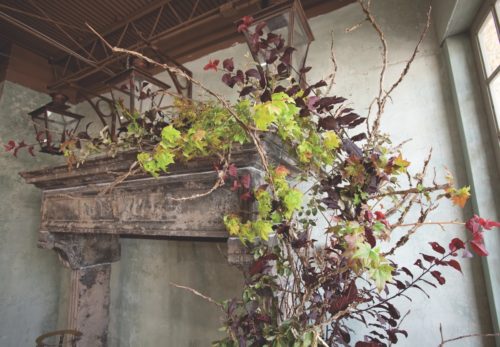
winged elm branches | maple foliage | purple leaf plum foliage | huckleberries
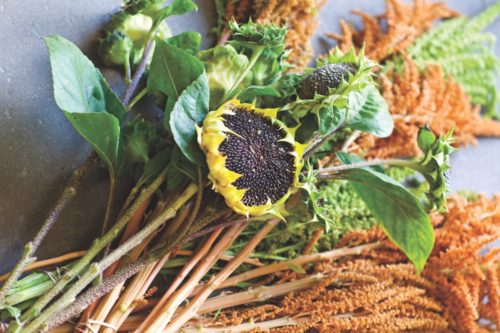
sunflower pods | golden amaranthus | green bittersweet
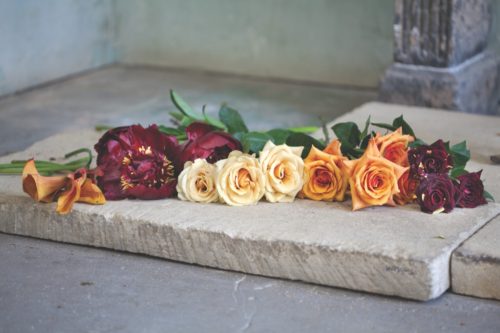
orange calla lilies | ‘Red Charm’ peonies | assorted roses
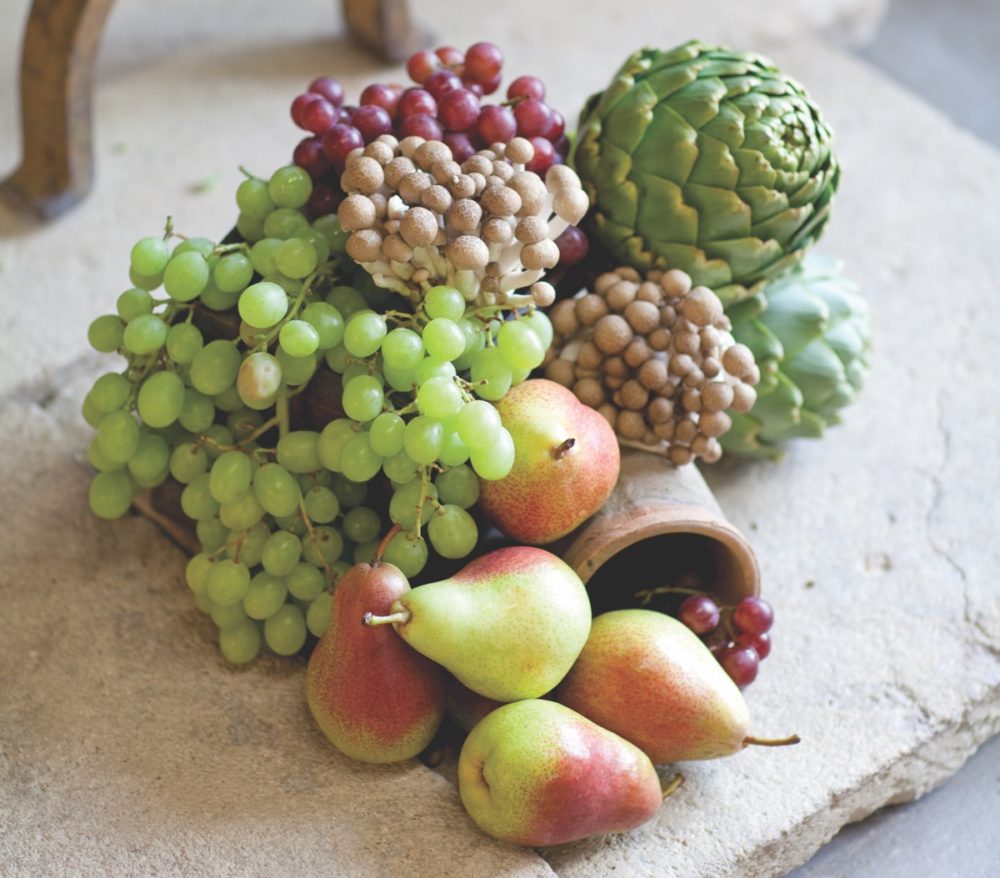
artichokes | enoki mushrooms | grapes | pears
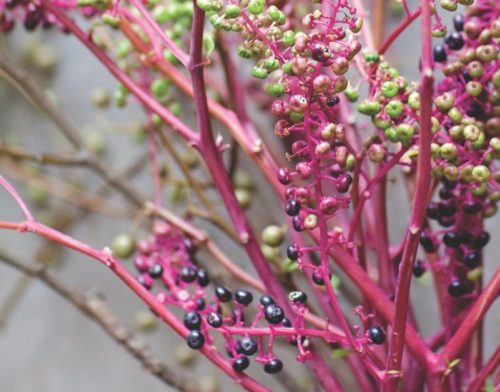
pokeberries
Mantel Arrangement Step-by-Step
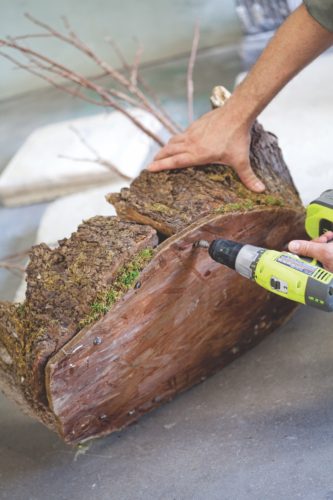 1| Start by attaching a plywood base to an elm stump, which will allow you to have a sturdy base for the installation. This can be done with an electric screwdriver and deck screws.
1| Start by attaching a plywood base to an elm stump, which will allow you to have a sturdy base for the installation. This can be done with an electric screwdriver and deck screws.
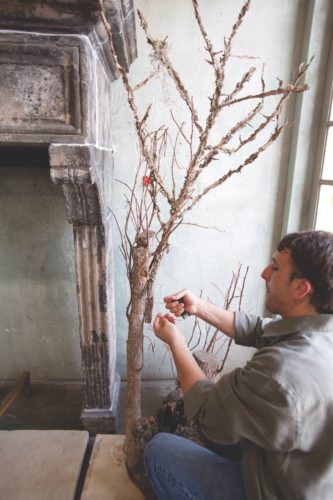 2| Next, stand the elm stump upright and use wire to attach sturdy branches to it. This will be the structure for attaching flowers. I chose winged elm branches, but any type of sturdy branch would be fine.
2| Next, stand the elm stump upright and use wire to attach sturdy branches to it. This will be the structure for attaching flowers. I chose winged elm branches, but any type of sturdy branch would be fine.
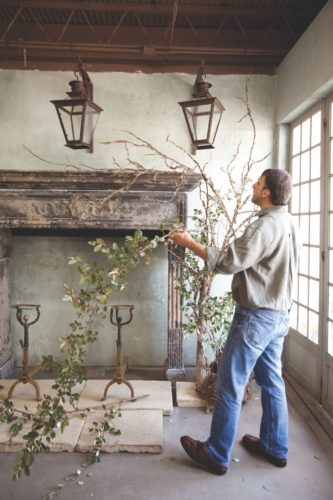 3 | To create the first design element and build form, attach branches of maple foliage to the structure.
3 | To create the first design element and build form, attach branches of maple foliage to the structure.
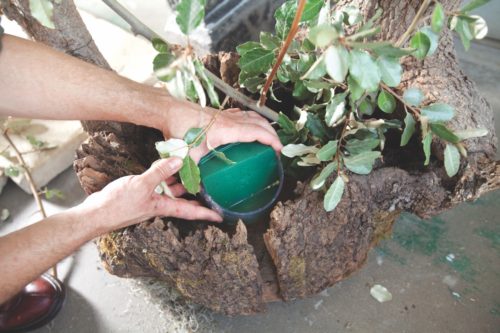 4| Take some presoaked floral foam and place it into a crevice of the elm stump. The floral foam is good for holding some tall branches in place at the bottom of the installation.
4| Take some presoaked floral foam and place it into a crevice of the elm stump. The floral foam is good for holding some tall branches in place at the bottom of the installation.
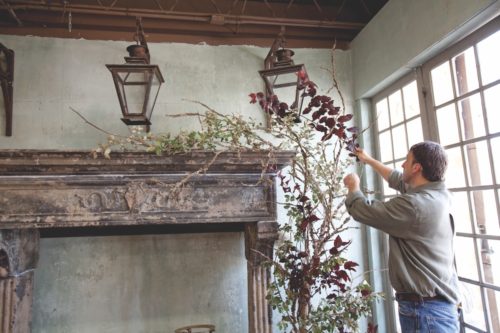 5| Next, wire some of the purple leaf plum foliage to the branches by following their natural curves. It’s important to incorporate the sturdy materials first, leaving the flowers for last.
5| Next, wire some of the purple leaf plum foliage to the branches by following their natural curves. It’s important to incorporate the sturdy materials first, leaving the flowers for last.
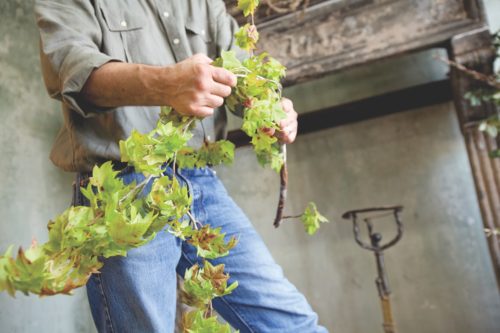 6| When adding foliage to the arrangement, prune away any undesirable leaves or stray bracts.
6| When adding foliage to the arrangement, prune away any undesirable leaves or stray bracts.
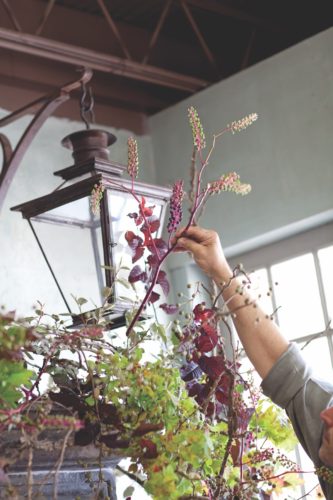 7| After attaching the foliage, add the other sturdy materials (like the pokeberry stems shown here) before incorporating the flowers.
7| After attaching the foliage, add the other sturdy materials (like the pokeberry stems shown here) before incorporating the flowers.
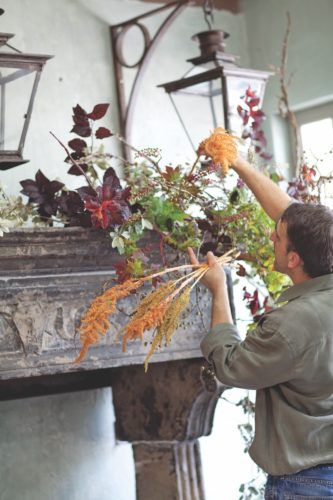 8| Then add the golden amaranthus. Be sure to allow it to hang organically as to not fight with the natural character of each material. Follow by adding in the green bittersweet and sunflower pods.
8| Then add the golden amaranthus. Be sure to allow it to hang organically as to not fight with the natural character of each material. Follow by adding in the green bittersweet and sunflower pods.
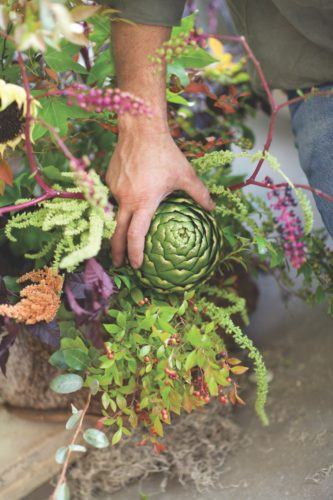 9| Next, firmly place an artichoke into the floral foam. I always use heavier vegetables and foliage at the base so the weight of the installation stays at the bottom.
9| Next, firmly place an artichoke into the floral foam. I always use heavier vegetables and foliage at the base so the weight of the installation stays at the bottom.
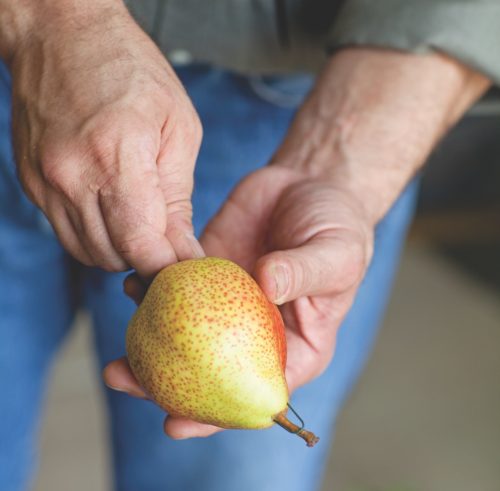 10a| Use wire to add the rest of the fruit and vegetables into the arrangement. Insert a strand of wire from the bottom of the pears through the top. Then “horseshoe” the wire and pull it back around the stem, which will lock the wire into the fruit.
10a| Use wire to add the rest of the fruit and vegetables into the arrangement. Insert a strand of wire from the bottom of the pears through the top. Then “horseshoe” the wire and pull it back around the stem, which will lock the wire into the fruit.
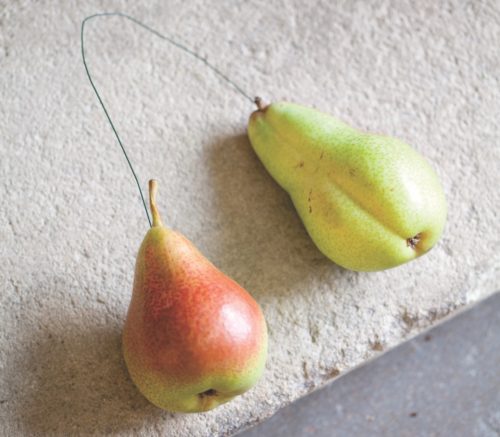 10b| Next, repeat the “horseshoe” step on the opposite end of the wire, attaching the two pears together. (This trick works with most types of fruit.)
10b| Next, repeat the “horseshoe” step on the opposite end of the wire, attaching the two pears together. (This trick works with most types of fruit.)
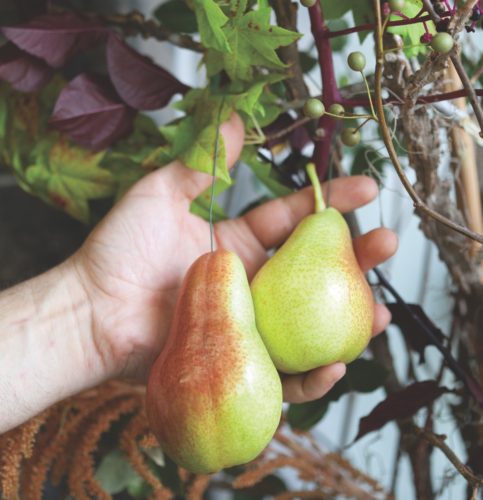 10c| Once the pears are wired together, hang them over a branch and twist them around each other, which will secure the fruit in place.
10c| Once the pears are wired together, hang them over a branch and twist them around each other, which will secure the fruit in place.
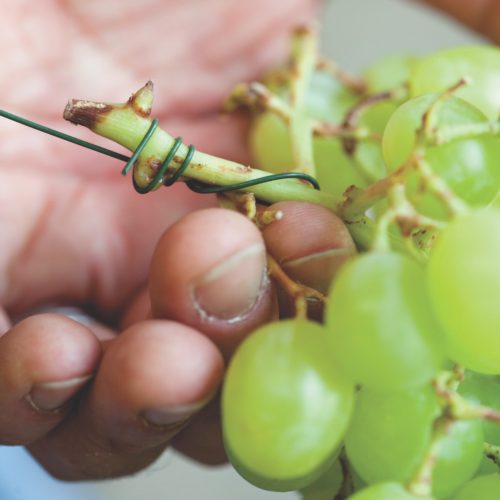 11| Loop a strand of wire through the clusters of grapes. Then pull the wire down and wrap it around the stem. You will then wire it to another cluster of grapes, similar to the pears in step 10b.
11| Loop a strand of wire through the clusters of grapes. Then pull the wire down and wrap it around the stem. You will then wire it to another cluster of grapes, similar to the pears in step 10b.
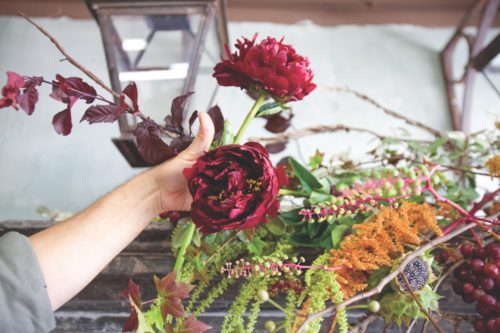 12| After wiring the fruit and placing it into the arrangement, add the larger flowers (like the peonies shown here). Tuck some inside the branches and some out front to build depth.
12| After wiring the fruit and placing it into the arrangement, add the larger flowers (like the peonies shown here). Tuck some inside the branches and some out front to build depth.
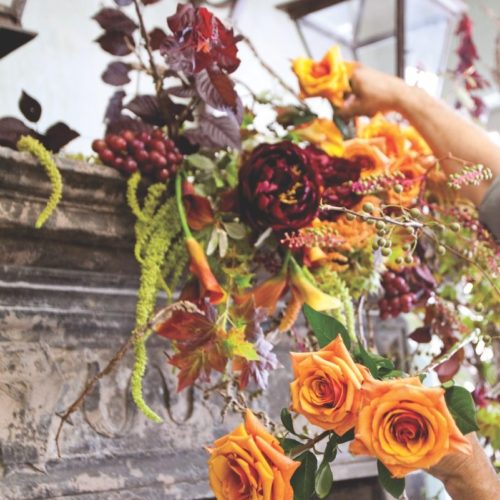 13| Next, in order to accent the larger flowers, add the smaller flowers in grouping of twos, threes, or more.
13| Next, in order to accent the larger flowers, add the smaller flowers in grouping of twos, threes, or more.
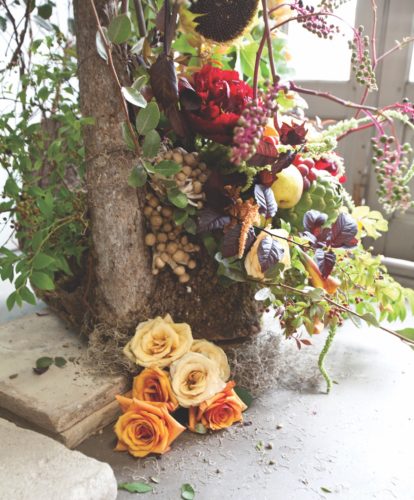 14| Finally, finish the design with clusters of flowers, foliage, fruit, or vegetables to cover the floral foam and any other mechanics.
14| Finally, finish the design with clusters of flowers, foliage, fruit, or vegetables to cover the floral foam and any other mechanics.
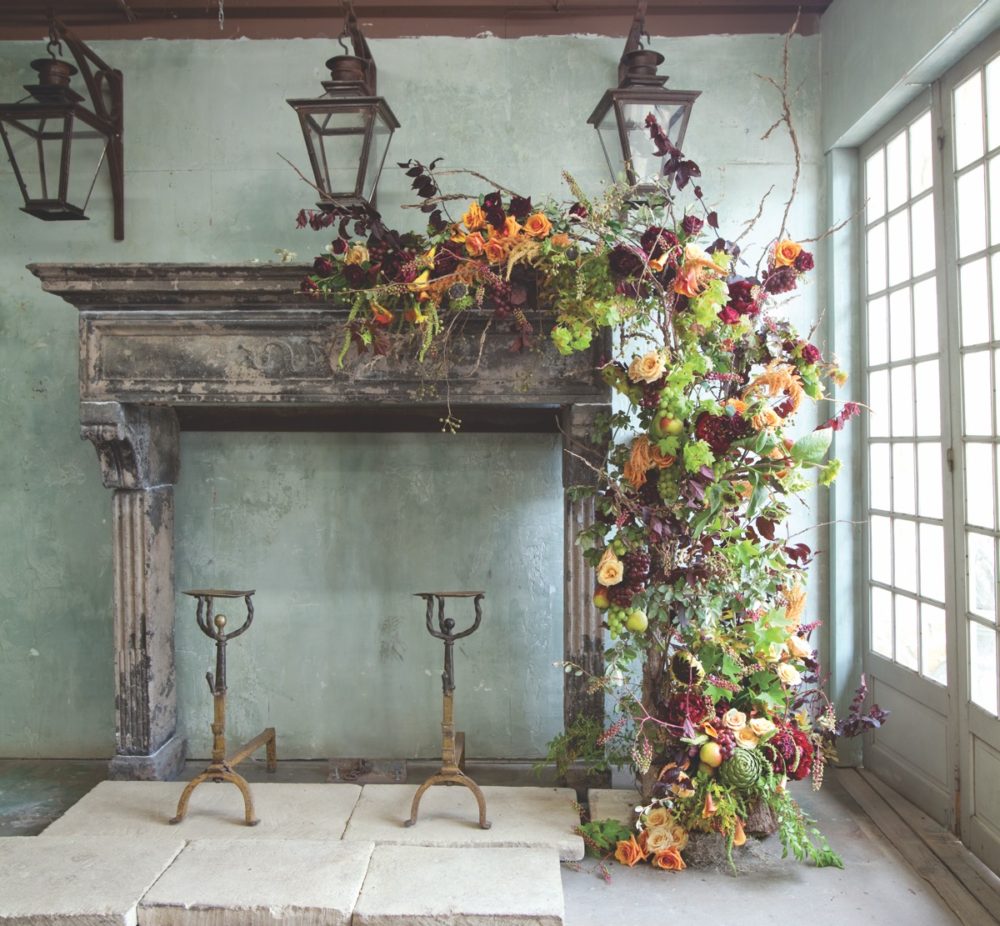
Johnathan Andrew Sage designed and built a magnificent, monumental, mantel arrangement that completely transforms its environment.
“I love the variance of colors, movement, and textures of the finished mantelpiece arrangement. Working on such a large scale really allows the use of the materials to make a unique statement.”—Johnathan Andrew Sage
By Johnathan Andrew Sage
Photography by Julie Soefer
MORE STEP-BY-STEP ARRANGEMENTS THAT SAY WOW!
Fruitful Holiday Arrangement: Emily Kennedy
Keen on Green: Maurice Harris
Maria Maxit | A Recipe in Bloom
Deck the Halls: Jessica Sloane


